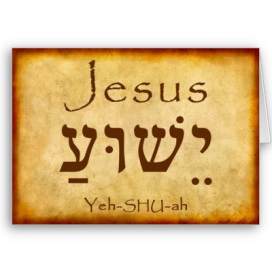
Sukkot is an eight-day long feast. That’s a lot of feasting! The first evening and day are special, but the end of the feast even more so. In fact, the last day is the epitome of the Festival of Sukkot. “Hoshana Rabba” (a request for great salvation) is on the seventh day, followed by “Shmini Atzeret” (eighth day of the assembly) and “Simchat Torah” (Joy of the Torah). Yeshua went to celebrate the feast of Sukkot in Jerusalem, and John chapter 7 describes what Yeshua said and did at this climactic time, two millennia ago… But first of all, a bit of background.
Simchat Beit Hashoavah – the joy of drawing water
By the time of Yeshua, a water libation ceremony had become part of the tradition of the festival. This was called the “Simchat Beit Hashoavah” – the water-drawing festival. The priests would go down to the pool of Siloam in the City of David (just south of where the Western Wall is today) and they would fill a golden vessel with the water there. They would go up to the temple, through the Water Gate, accompanied by the sound of the shofar, and then they would pour the water so that it flowed over the altar, along with wine from another bowl. This would begin the prayers for rain in earnest, and there was much rejoicing at this ceremony. Here’s how the Talmud describes it:
“He who has not seen the rejoicing at the place of the water-drawing has never seen rejoicing in his life. At the conclusion of the first festival day of Tabernacles they descended to the court of the women where they had made a great enactment. There were there golden candlesticks with four golden bowls on the top of each of them and four ladders to each, and four youths drawn from the priestly stock in whose hands were held jars of oil… there was not a courtyard in Jerusalem that was not illumined by the light of the place of the water-drawing. Men of piety and good deeds used to dance before them with lighted torches in their hands, and sing songs and praises. And Levites without number with harps, lyres, cymbals and trumpets and other musical instruments were there upon the fifteen steps leading down from the court of the Israelites to the court of the women, corresponding to the fifteen songs of ascents in the psalms…” (Babylonian Talmud, Tractate Sukkah 51a and 51b)
The ceremony refers to this passage in Isaiah 12:
“Behold, God is my salvation; I will trust, and will not be afraid;
for the Lord God is my strength and my song, and he has become my salvation.”
With joy you will draw water from the wells of salvation.” (Isaiah 12:2-3)
One of the names for this day is “Hoshana Raba”, which means Great Salvation. And you may know that this is the exact word of Yeshua’s name – Salvation. The Hebrew word literally says, with joy you will draw water from the wells of Yeshua!
So now let’s see what John 7 tells us about Yeshua at the climax of the Feast of Sukkot:
“On the last and greatest day of the festival, Jesus stood and said in a loud voice, “Let anyone who is thirsty come to me and drink. Whoever believes in me, as Scripture has said, rivers of living water will flow from within them.” (John 7:37-38)
The passage discusses all of Yeshua’s teaching at Sukkot in Jerusalem, and explains that when he was speaking of this living water, he was referring to the Holy Spirit, which was to be poured out on the believers.
How about that? No wonder it caused sparks to fly and discussions about whether he was or was not the Messiah. Yeshua was also referencing Isaiah 55, a chapter calling the people of Israel in particular to salvation. It begins like this,
“Come, everyone who thirsts, come to the waters, and he who has no money, come, buy and eat! Come, buy wine and milk without money and without price.”
This same theme appears again in the climax of our great story, in Revelation 22:
“The Spirit and the Bride say, “Come.” And let the one who hears say, “Come.” And let the one who is thirsty come; let the one who desires take the water of life without price.” (Revelation 22:17)
Now is the day of salvation! Hoshana Raba! Yeshua is coming back soon – let’s call as many as we can to come and enjoy the water of life. Yeshua has paid for our salvation from sin and death so that we can enjoy abundant life with God forever, and he is offering it free to all who will come to him today.
This is also the time when the yearly cycle of reading through the Torah, one portion at a time, restarts back at Genesis. It is time to rejoice with the Torah (Simchat Torah), and many people will stay up all night reading it! Please pray for Jewish brothers and sisters all over the world to hear the voice of their Messiah calling them today: “COME”.
One For Israel (Messianic Jews on Israel)






